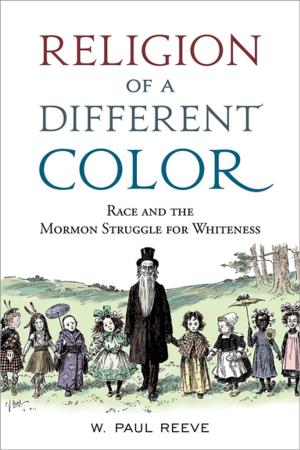Rabbinic Tales of Destruction
Gender, Sex, and Disability in the Ruins of Jerusalem
Nonfiction, Religion & Spirituality, Judaism, Talmud, Sacred Writings, History| Author: | Julia Watts Belser | ISBN: | 9780190853259 |
| Publisher: | Oxford University Press | Publication: | November 15, 2017 |
| Imprint: | Oxford University Press | Language: | English |
| Author: | Julia Watts Belser |
| ISBN: | 9780190853259 |
| Publisher: | Oxford University Press |
| Publication: | November 15, 2017 |
| Imprint: | Oxford University Press |
| Language: | English |
In Rabbinic Tales of Destruction, Julia Watts Belser examines early Jewish accounts of the Roman conquest of Judea. Faced with stories of sexual violence, enslavement, forced prostitution, disability, and bodily risk, Belser argues, our readings of rabbinic narrative must wrestle with the brutal body costs of Roman imperial domination. She brings disability studies, feminist theory, and new materialist ecological thought to accounts of rabbinic catastrophe, revealing how rabbinic discourses of gender, sexuality, and the body are shaped in the shadow of empire. Focusing on the Babylonian Talmud's longest sustained account of the destruction of the Temple, Belser reveals Bavli Gittin's distinctive sex and gender politics. While Palestinian tales frequently castigate the 'wayward woman' for sexual transgressions that imperil the nation, Bavli Gittin's stories do not portray women's sexuality as a cause of catastrophe. The Bavli's resistance to Rome makes a critical difference. While other rabbinic texts commonly inveigh against women's beauty as the cause of sexual sin, Bavli Gittin's tales express a strikingly egalitarian discourse that laments the vulnerability of the beautiful Jewish body before the conqueror. Bavli Gittin's body politics, Belser maintains, align with a significant theological reorientation. While most early Jewish narratives link the destruction of the Temple to communal sin, Bavli Gittin's account does not explain catastrophe as divine chastisement. Instead of imagining God as the architect of Jewish suffering, it evokes God's empathy with the subjugated Jewish body. As it navigates the ruins of Jerusalem, Bavli Gittin forges a sharp critique of empire. Its critical discourse aims to pierce the power politics of Roman conquest, to protest the brutality of imperial dominance, and to make plain the scar that Roman violence leaves upon Jewish flesh.
In Rabbinic Tales of Destruction, Julia Watts Belser examines early Jewish accounts of the Roman conquest of Judea. Faced with stories of sexual violence, enslavement, forced prostitution, disability, and bodily risk, Belser argues, our readings of rabbinic narrative must wrestle with the brutal body costs of Roman imperial domination. She brings disability studies, feminist theory, and new materialist ecological thought to accounts of rabbinic catastrophe, revealing how rabbinic discourses of gender, sexuality, and the body are shaped in the shadow of empire. Focusing on the Babylonian Talmud's longest sustained account of the destruction of the Temple, Belser reveals Bavli Gittin's distinctive sex and gender politics. While Palestinian tales frequently castigate the 'wayward woman' for sexual transgressions that imperil the nation, Bavli Gittin's stories do not portray women's sexuality as a cause of catastrophe. The Bavli's resistance to Rome makes a critical difference. While other rabbinic texts commonly inveigh against women's beauty as the cause of sexual sin, Bavli Gittin's tales express a strikingly egalitarian discourse that laments the vulnerability of the beautiful Jewish body before the conqueror. Bavli Gittin's body politics, Belser maintains, align with a significant theological reorientation. While most early Jewish narratives link the destruction of the Temple to communal sin, Bavli Gittin's account does not explain catastrophe as divine chastisement. Instead of imagining God as the architect of Jewish suffering, it evokes God's empathy with the subjugated Jewish body. As it navigates the ruins of Jerusalem, Bavli Gittin forges a sharp critique of empire. Its critical discourse aims to pierce the power politics of Roman conquest, to protest the brutality of imperial dominance, and to make plain the scar that Roman violence leaves upon Jewish flesh.















